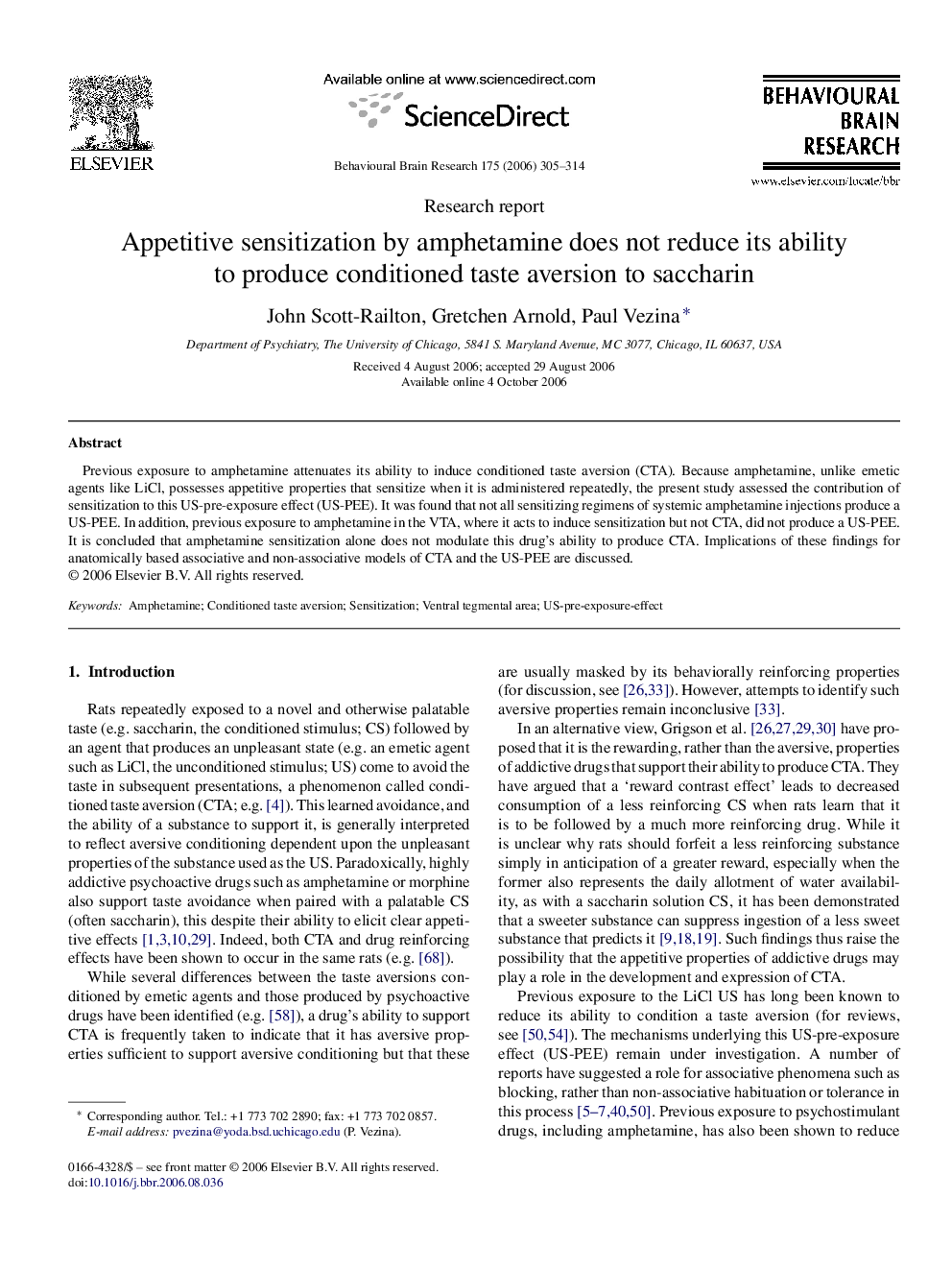| Article ID | Journal | Published Year | Pages | File Type |
|---|---|---|---|---|
| 4315900 | Behavioural Brain Research | 2006 | 10 Pages |
Abstract
Previous exposure to amphetamine attenuates its ability to induce conditioned taste aversion (CTA). Because amphetamine, unlike emetic agents like LiCl, possesses appetitive properties that sensitize when it is administered repeatedly, the present study assessed the contribution of sensitization to this US-pre-exposure effect (US-PEE). It was found that not all sensitizing regimens of systemic amphetamine injections produce a US-PEE. In addition, previous exposure to amphetamine in the VTA, where it acts to induce sensitization but not CTA, did not produce a US-PEE. It is concluded that amphetamine sensitization alone does not modulate this drug's ability to produce CTA. Implications of these findings for anatomically based associative and non-associative models of CTA and the US-PEE are discussed.
Related Topics
Life Sciences
Neuroscience
Behavioral Neuroscience
Authors
John Scott-Railton, Gretchen Arnold, Paul Vezina,
